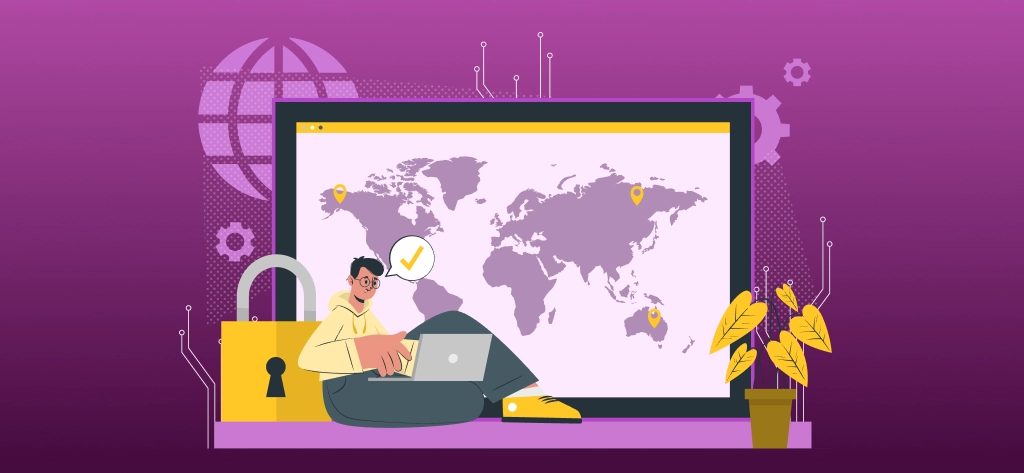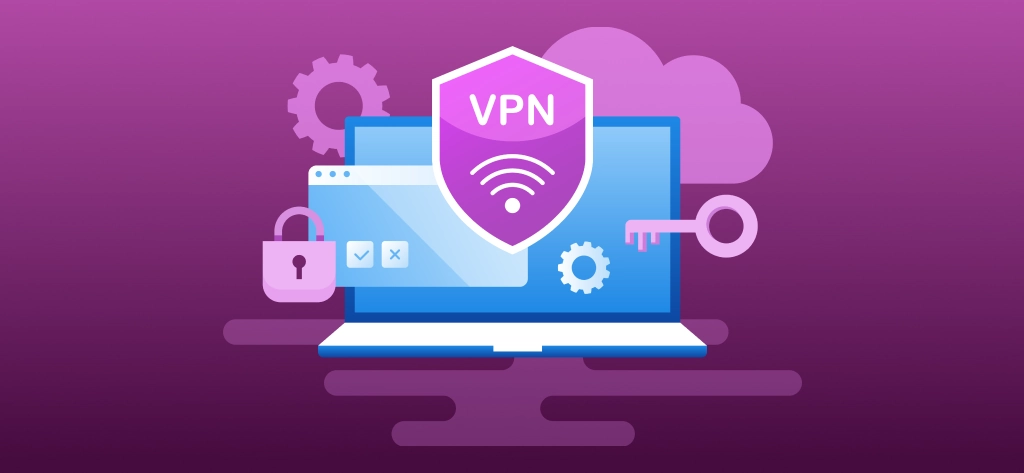Are VPNs Legal at Online Casinos?

A VPN is a service that improves your online privacy and security by creating a secure, encrypted connection between your device and the internet. When you connect to the internet through a VPN, your data is routed through a server operated by the VPN provider. This server can be located anywhere in the world, allowing you to appear as if you’re browsing from a different geographic location.
One of the key features of a VPN is that it masks your real IP address, which is the unique identifier that reveals your location and internet activity. By replacing your IP address with one from the VPN server, a VPN makes it much more difficult for websites, advertisers, and even hackers to track your online activities.
VPNs are also often used to bypass geo-restrictions. For instance, if a website is blocked in your country, you can use a VPN to connect to a server in a region where the content is available, giving you access as if you were physically there. However, many users asked “Are VPNs legal to use?”
Is it Illegal to Use a VPN to Gamble Online?
Many players have asked the question – “Is using a vpn to gamble illegal?” And the short answer is that using VPN generally is not illegal. However this can become a complex issue that depends on several factors, including your country’s laws, the online casino’s terms and conditions, and the specific nature of your online gambling activities.
Legal Aspects of VPN Use in Online Gambling
Using a VPN to access online casinos can fall into a legal grey area. In many countries, online gambling is heavily regulated, with some jurisdictions allowing it under certain conditions and others outright banning it. When you use a VPN to access an online casino, you might be able to bypass geographical restrictions and appear as though you are located in a country where online gambling is legal.
For example, some countries, like the United Arab Emirates, China, and Iran, have strict laws against online gambling. In such regions, if you ask us “Is it illegal to use a vpn to gamble online using a VPN” – we would say yes! Accessing an online casino could potentially violate local laws, leading to legal repercussions. On the other hand, in countries where online gambling is partially legal or unregulated, using a VPN might not be explicitly illegal. However, it could still breach the terms of service of the online casino.
Online casinos typically include specific clauses in their terms and conditions about using VPNs. These rules ensure the casino complies with local gambling regulations and prevents fraud or abuse.
Risks and Consequences
Some online casinos explicitly forbid the use of VPNs because they rely on geo-location technologies to ensure that they operate within the legal boundaries of their jurisdictions. If the casino detects VPN use, it could result in your account being suspended or permanently closed, and any winnings you’ve accumulated may be forfeited.
Another risk involves legal consequences. In countries where online gambling is illegal or restricted, using a VPN to bypass these restrictions could expose you to fines or other legal penalties.
Additionally, not all VPNs offer the same level of security. If you’re using a VPN from an unreliable provider, you might be putting your personal and financial information at risk. Some low-quality VPNs may have vulnerabilities that hackers could exploit, leading to data breaches or theft.
Countries with Online Gambling Restrictions
The landscape of online gambling is highly diverse. A frequently asked question from players is “Is it illegal to use a vpn to gamble?” Each country imposes its regulations that determine where and how people can legally gamble. These regulations can range from complete bans to partial restrictions and sometimes allow for a more flexible approach.
In the United Arab Emirates, North Korea, China, Iran, Cambodia, and Qatar, online gambling is outright prohibited by law. This means that accessing online casinos from these regions, whether through a VPN or not, is illegal and can lead to severe legal consequences.
Governments in these countries take a hard stance on gambling, often enforcing strict penalties on those who attempt to circumvent these laws.
On the other hand, there are countries where online gambling is partially legal, with restrictions often focused on specific types of gambling, such as sports betting. For instance, only certain forms of online gambling, like sports betting, are allowed in Japan, Singapore, and Cyprus.
Similarly, in the United States, online casinos are restricted in most states, with only a few—New Jersey, Delaware, Michigan, West Virginia, Pennsylvania, and Connecticut—allowing them. Meanwhile, sports betting has been legalized nationwide as of 2023.

There are also countries where local online casinos are banned, but no specific laws regulate gambling on foreign online casinos. This category includes places like Japan, Hong Kong, Malaysia, Uzbekistan, Singapore, Cyprus, and others. In these countries, while local operators are barred from offering online gambling services, residents may still be able to access foreign online casinos.
In many Western European countries, all online casinos must obtain a license to operate legally. Countries like the United Kingdom, Italy, France, Spain, Germany, and Denmark require local and foreign online casinos to comply with stringent licensing requirements and pay taxes to the local government. In these jurisdictions, using a VPN to access an unlicensed casino could block the casino or suspend your account due to non-compliance with local gambling regulations.
Some countries have more specific regulations, where only local online casinos must have a license to operate. These include nations like Canada, Greece, Hungary, Ireland, Norway, Sweden, and Slovenia. In these countries, the focus is on ensuring that local operators meet the legal requirements, while foreign casinos might be more accessible.
Finally, there are regions where all online casinos are legal, with few to no restrictions on gambling. Many countries in Africa, Oceania, Central America, and most of South America fall into this category, as well as European nations like Albania, Andorra, Liechtenstein, and Malta. In these places, online gambling is widely accepted, and using a VPN to access online casinos is generally not necessary. However, it’s still advisable to use a VPN for privacy and security, even in these more permissive environments.
FAQs
It depends on your country’s laws and the terms of the online casino. In many cases, it can be against the casino’s rules, even if it’s not illegal.
Technically, you can, but it’s illegal in countries with strict online gambling laws, and you could face severe legal consequences.
Some smaller or less regulated casinos may be more tolerant of using VPNs for online gambling.
- VPN for Online Poker: A Complete Guide for Poker Players - August 30, 2024
- Top 5 VPNs for Online Gambling and Sports Betting - August 30, 2024
- Are VPNs Legal at Online Casinos? - August 29, 2024